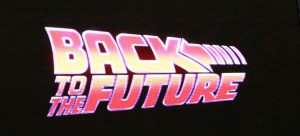More than 150 million Americans will receive an Economic Income Payment by the time the Internal Revenue Service has completed the stimulus check program, which was part of the $2.2 trillion CARES Act signed into law in late March. The IRS began sending them in mid-April, but some are still waiting on their checks. Even those who have already received checks might have questions about them, so here is a look at ten common myths.
So far, there is still no law that includes a second stimulus check. Earlier this month, House Democrats passed the $3 trillion HEROES Act, which is not going to pass in the Senate. President Donald Trump and some Republicans have expressed interest in second stimulus checks, but there is unlikely to be any new coronavirus relief passed until some time next month. Senate Leader Mitch McConnell said he would rather see how the CARES Act relief does before taking on more legislation.
Videos by PopCulture.com
Meanwhile, 2.1 million more Americans filed first-time jobless claims last week and more than 40 million Americans have filed claims in the past 10 weeks, according to the Department of Labor. While almost 4 million Americans came off unemployment benefits earlier this month, the unemployment rate for May is still expected to climb to 20%, reports CNBC. Millions of Americans are looking for help and many have hoped that the stimulus check would provide even temporary relief. Here are 10 false myths about the payments.
Everyone is eligible.
Not everyone was eligible for the stimulus payment from the CARES Act. Only individual taxpayers who filed federal taxes for 2018 or 2019, with an adjusted gross income of $75,000 or less were eligible for the full $1,200. Married couples with incomes double that were also eligible for a $2,400 payment. Any individual with an income over $99,000 was not eligible at all. Dependants under 17 were eligible for $500 added to the head of household’s check.
You can cash a deceased person’s check.

There were multiple reports of relatives receiving checks for deceased family members. However, you cannot cash those checks. The IRS has asked that the payment be returned. The only exception is if the deceased was part of a joint-filing with living relatives. “You’re not supposed to keep that payment,” Treasury Secretary Steve Mnuchin told The Wall Street Journal in April. “We’re checking the databases, but there could be a scenario where we missed something, and yes, the heirs should be returning that money. We will be issuing guidance on this shortly.”
You can’t get anything less than $1,200.
It is possible to get less than $1,200 from the IRS. Individuals with an adjusted gross income of up to $75,000 during 2018 or 2019 will receive the full $1,200. However, if you earn more than $75,000, but less than $99,000, your check will be reduced by $5 for each $100, notes The Motley Fool. For example, if you made $80,000, your payment will be cut by $250. As previously noted, if you earned more than $99,000, you would not be eligible for a payment at all.
The IRS is sending prepaid debit cards.

The vast majority of Americans will or already have received their payments as a check in the mail or as a direct deposit. However, some might receive it as a prepaid debit card in an envelope from “Money Network Cardholder Services.” The Visa name is on the front of the card, wih MetaBank, N.A. listed as the issuing bank.
The government will tax the stimulus payment.
The stimulus payment is not going to be taxed. You do not have to worry about paying it back, notes Newsday. However, if you do owe the government back taxes, the IRS can put the stimulus payment towards what you owe. People who owe child support might also find that taken out of the payment. If that is the case, the Bureau of the Fiscal Service will send a notice.
Banks and debt collectors could not garnish your payment.

Congress allowed banks and debt collectors to garnish checks from individuals with debt, which shocked some taxpayers hoping to use the checks for essentials. Some banks did put in policies allowing customers to repay late fees at a later date, but banks could still take from the payments. This loophole was widely criticized last month, with 25 state attorneys writing to Treasury Secretary Steve Mnuchin, asking him to fix it, reports USA Today.
You are ineligible if you did not file taxes.
Some people who do not have to file taxes were eligible for the payment, ut they had to use the IRS’ “Non-Filers: Enter Payment Info Here” tool. It is meant for single people whose adjusted gross incomes were under $12,200 and married couples with incomes under $24,400. “The Non-Filers tool is an easy way people can register for these payments. I appreciate the work of the Free File Alliance to quickly develop a Spanish-language version of this tool to reach additional people. This is part of a wider effort to reach underserved communities,” IRS Commissioner Chuck Rettig explained last month.
Every dependent receives $500

One widely criticized flaw in the CARES Act was that it did not allow all dependents to receive $500 added to the main tax filers’ payment. Only dependents under 17 qualified, meaning high school seniors, college students and any adult listed as a dependent on someone’s tax filing were not eligible. In addition, if you welcomed a child in 2019, but your most recent tax filing was for 2018 and did not include the child, the child was not be eligible for the $500.
Social Security beneficiaries do not receive payments.
Social Security beneficiaries who have not filed their taxes will still receive a stimulus check. The IRS looks at a beneficiaries’ payout record to see if they are eligible for the payments and will submit the check as a direct deposit to the same bank account where a beneficiary receives their regular Social Security payments. Social Security recipients should have begun receiving checks on May 14.
You will have to pay back your stimulus check if you make more in 2020.

If you earn more money in 2020 than you did in 2018 or 2019, you will not have to pay the government back the stimulus check. The amount you receive is based on your adjusted gross income on your 2018 or 2019 tax filings, so your 2020 earnings do not come into play. However, as The Motley Fool points out, it if your 2020 income drops to the level where you would have been eligible for a stimulus check, you can apply for the difference when you submit your 2020 tax filing.








